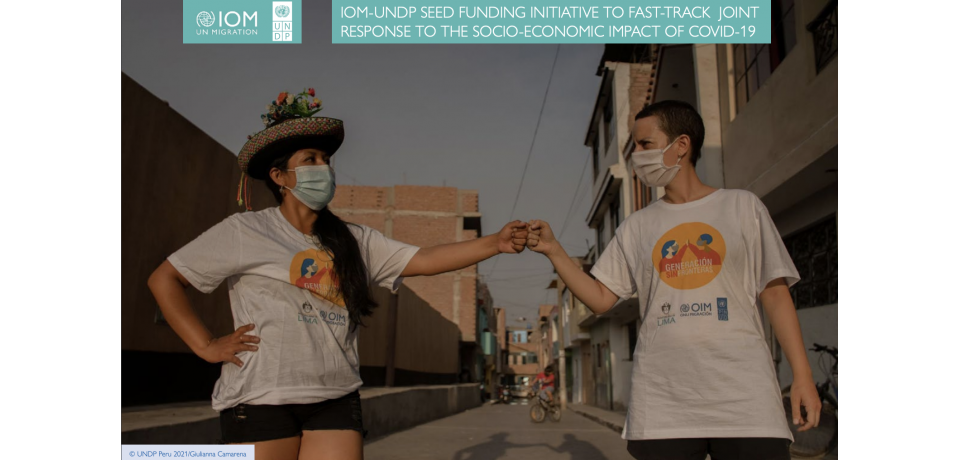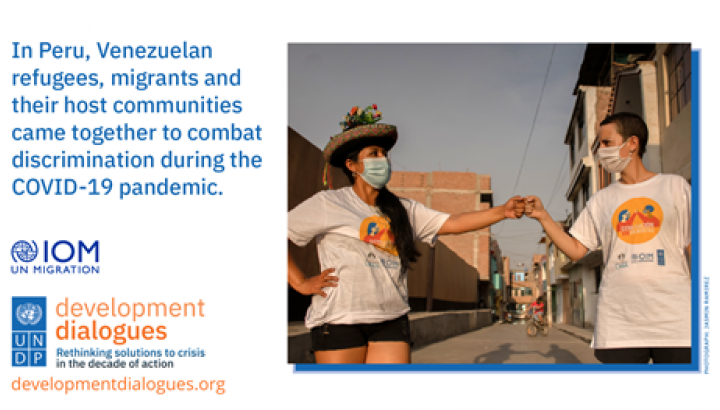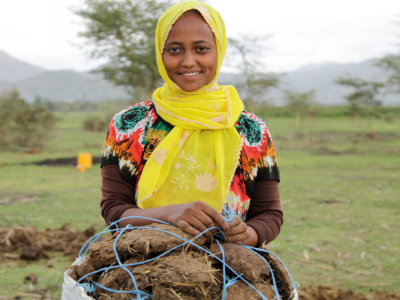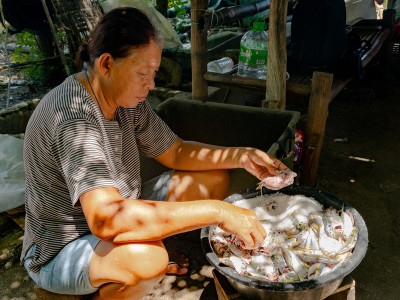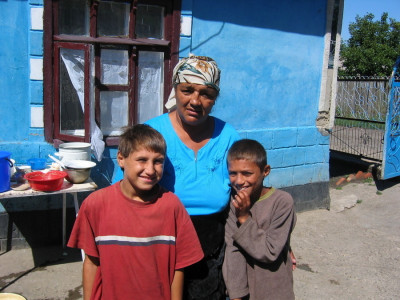NextGen integration: Innovative solutions to accelerate socio-economic recovery of refugees and migrants and co-create the future of integrated communities in Peru
Giovanna Brazzini, Coordinadora de iniciativas de Migración con enfoque de Desarrollo, UNDP Peru, giovanna.brazzini@undp.org
Charlie Smith, Oficial de Planificación Estratégica y Punto Focal Migración, UNDP Peru, charlotte.smith@undp.org
Rogelio Quintero, IOM Peru, rquintero@iom.int
Michel Hoffman, IOM Peru, mhoffmann@iom.int
Related Sustainable Development Goals and Global Compact for Migration Objectives
Summary
The municipal government of Lima, with the support of IOM and UNDP, helped integrate Venezuelan refugees and migrants into host communities by including them in municipal recovery efforts. Documentary screenings and the co-creation of murals by Venezuelan and Peruvian artists are helping discourage xenophobia. The initiative was founded on partnership and the co-creation of activities between local authorities and communities, artists, businesses, and the UN system.
The initiative complemented UNDP’s work on the Metropolitan Strategy for Human Mobility with a focus on socio-economic integration and IOM’s work collecting and analyzing real-time data on the situation of refugees and migrant populations and their challenges, including through measuring Migration Governance Indicators (MGI).
This project is part of the IOM-UNDP seed funding initiative to fast-track joint response to the socio-economic impact of COVID-19.
Key objective
The objective of the project was to utilize innovative solutions to accelerate the socio-economic recovery of refugees and migrants and to co-create the future of integrated communities in Peru, where 87.6% of refugees and migrants have reported that their basic needs are not met and where xenophobic discourse and openly anti-immigration proposals are on the rise.
Main activities
To foster innovative approaches for effective governance with a human mobility approach, the initiative registered, georeferenced and trained community organizations, to empower Venezuelan refugees and migrant populations as changemakers in municipal decision-making mechanisms, together with host communities, through local development plans, participatory budgets and socio-economic recovery plans. The initiative also engaged the changemaking power of grassroots leaders and entrepreneurs. Five cocreated social cohesion solutions were awarded through the Metropolitan Municipality of Lima (MML)-led Innovative Integration Competition, including junior firefighters, digital platforms for COVID-19 health and socio-economic recovery and household first aid and emergency attention to COVID-19. Building on the above, the initiative successfully went beyond traditional communication approaches. Key messages about the opportunities that human mobility and social cohesion bring to COVID-19 socioeconomic recovery and local development were spread through multi-stakeholder, artistic expressions to debunk discriminatory and xenophobic discourses, including documentary screenings and designing and painting of murals by Venezuelan and Peruvian artists.
Key successes or innovative factors, good practices and lessons learned (if available)
One key lesson learned is that joint initiatives can result in a more strategic collaboration between UNDP and IOM on local human mobility management and policy, with a focus on socio-economic integration and COVID-19 recovery. Other lessons learned include the importance of “disruptive” co-creating COVID-19 socio-economic recovery initiatives that enhance social cohesion initiatives as well as empower digital actors and entrepreneurs at a grassroot level. Moreover, the initiative showed that local government’s leadership can be transformational, as unmet needs identified during the initiative has led to a realization that the municipality must be empowered to assume its integrator role and push for a greater institutionalization of positive human mobility management as a socio-economic recovery and sustainable development accelerator.
Beneficiaries
Venezuelan refugees and migrant populations, and the broader community of Lima, Peru
